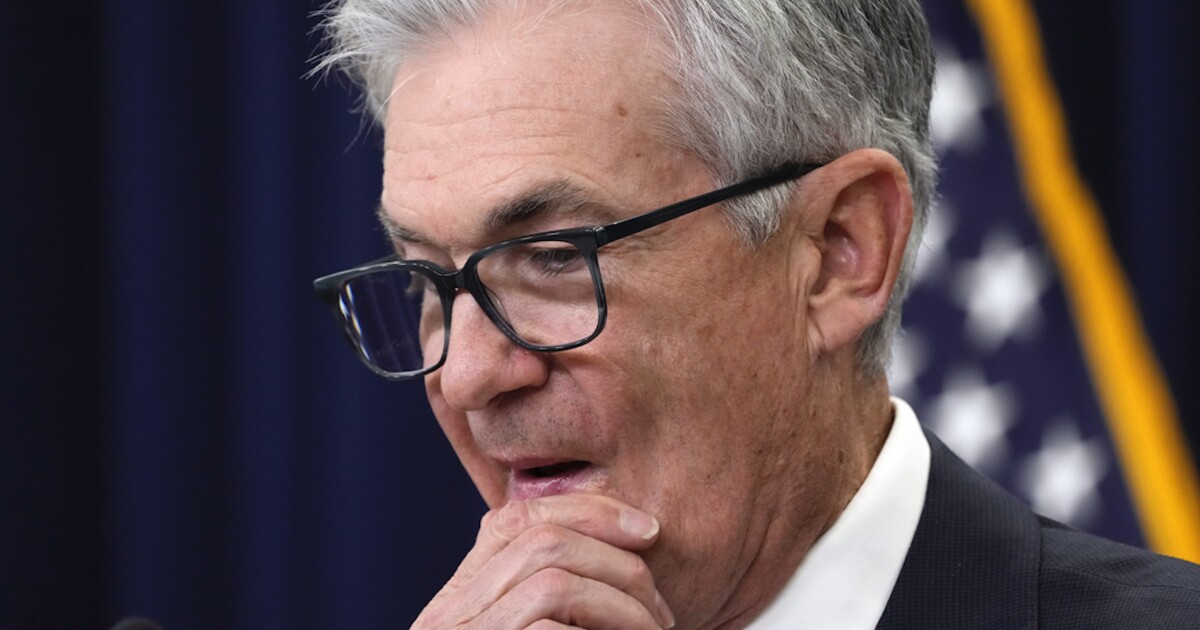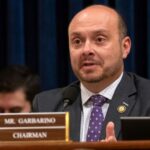

Fed Chairman Jerome Powell and Treasury Secretary Janet Yellen gave diverging answers to questions about whether the government would guarantee bank deposits over the Federal Deposit Insurance Corporation’s limit.
Following the collapses of Silicon Valley Bank and Signature Bank, some lawmakers in both parties have been wondering about whether the Federal Deposit Insurance Corporation’s $250,000 cap should be raised.
SVB COLLAPSE: INFLUENTIAL LAWMAKERS CALL TO LIFT $250,000 CAP ON FDIC DEPOSIT INSURANCE
Those seeking a clear and unified message from the Treasury and Fed didn’t get one on Wednesday after the central bank’s decision to hike rates once again.
Yellen, testifying before the Financial Services and General Government Subcommittee at the same time that Powell gave his semiannual press conference following the rate revision, fielded a question about whether officials are looking into ways to expand FDIC coverage to all deposits.
“This is not something we have looked at, it’s not something that we’re considering,” she told lawmakers, seemingly throwing cold water on the notion that the coverage will be extended to all deposits.
During his remarks to reporters after the Fed’s 0.25 percentage point rate hike, Powell stressed that depositors’ savings in the banking system are safe.
He was asked whether he meant that by saying that de facto deposit insurance covers all savings — for instance, if a bank with less than $1 billion in assets fails, would the Fed make all of its depositors whole?
“Well, I’m not saying anything more than I’m saying. But what I’m saying is you’ve seen that we have the tools to protect depositors when there is a threat of serious harm to the economy or to the financial system, and we’re prepared to use those tools,” Powell responded.
“And I think depositors should assume that their deposits are safe,” he added.
The dissonance appeared to rattle equity markets, which prior to the divergence had been trending cautiously upward.
The Dow Jones Industrial Average closed down more than 500 points Wednesday. The tech-heavy Nasdaq and the S&P 500 both plunged by more than 1.6%. Meanwhile, the Chicago Board Options Exchange Volatility Index, better known as VIX but also as the “fear index,” was up more than 4.5% around the time that markets closed on Wednesday.
Additionally, beleaguered First Republic Bank’s shares declined by more than 15%, with the rout accelerating following the remarks. Zions Bankcorp fell by 6.7%, and US Bankcorp dropped by 7.3%. Major banks Goldman Sachs and JPMorgan both ended in the red.
Over the past week or so, lawmakers have been musing about raising or eliminating the FDIC cap in order to instill confidence in the banking system.
Sen. Elizabeth Warren (D-MA) said Sunday that raising the limit has “got to be on the table right now” amid the turmoil in the banking sector.
“I think the lifting the FDIC insurance cap is a good move. Now the question is where’s the right number on lifting? But recognize that we have to do this because these banks are underregulated, and if we lift the cap, we are requiring — or relying even more heavily on the regulators to do their jobs,” the Massachusetts Democrat said on Face the Nation.
Rep. Blaine Luetkemeyer (R-MO), a former banker, suggested last week that the government should begin temporarily insuring every bank deposit in the country as a way to shore up confidence in the U.S. banking system.
“If you don’t do this, there’s going to be a run on your smaller banks,” Luetkemeyer told Politico. “Everyone’s going to take their money out and run to the JPMorgan’s and these too-big-to-fail banks, and they’re going to get bigger, and everybody else is going to get smaller and weaker, and it’s going to really be bad for our system.”
Free-market advocates, though, are saying, “not so fast.”
Members of the conservative House Freedom Caucus released a statement on Monday opposing more “bailouts” of banks.
CLICK HERE TO READ MORE FROM THE WASHINGTON EXAMINER
“Furthermore, Members of the House Freedom Caucus oppose any universal guarantee on bank deposits over the current limit, as well as any attempt to force unnecessary, burdensome regulations or costs onto small and mid-sized banks (and their customers) who are at no fault in this crisis,” they said.
Mark Calabria, the former director of the Federal Housing Finance Agency, told the Washington Examiner that the cap should be lowered and said that academic evidence indicates that more generous deposit insurance makes financial crises more likely and means that people put less money into mutual funds and stocks.




